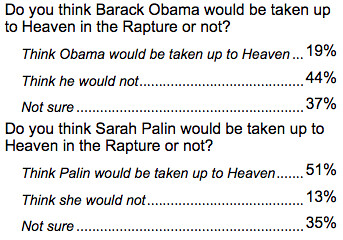It occurs to me that Fridays have always been an important day of the week (for me at least). First, and most obviously, Friday marks the end of a work week . . . if you are working, which as most of you know, I retired from a few years ago. Nonetheless, I still remember what a great day Friday was when I was working. Because it meant I was not going to work for a couple of days at least. Away from the commute, bosses (to which I'm congenitally allergic), pointless job, the boredom, the stifling political/cultural atmosphere (I worked for the Dept of Defense, surrounded by military guys/gals and a crew of civilians that pretty much loved the military)--so it was great to get away from that even for just two days. Hell, being away from it for
one day was great.
Another thing that will resonate with the older crowd who were brought up Catholic. Friday used to be a day you could not eat meat. You had to eat fish. Like every Friday of the year. No exceptions. Church rule. We were taught by Holy Mother Church that if you ate meat on Friday on purpose, God would be sending you to hell
for all eternity. From where I sit now, it is matter of almost total amazement that anybody believed this and a lot of other stuff that the church told us you were going to hell for all eternity for. Practicing birth control, for example; getting remarried after a divorce; not contributing to the support of your pastor/the Church--how thoughtful of God to make sure the church always got money by having the Church think up this rule. This doesn't even count the whole slew of other things that would
send you to hell for all eternity: going to a Protestant church, getting married somewhere other than a Catholic church, marrying a non-Catholic or (horrors!) a non-Christian with church permission; entertaining "dirty" thoughts and masturbation (insurmountable challenges for young males of the species); reading books on the Index of Forbidden Books*--check out the
listings in Wikipedia. And this list is just partial. It's also a matter of amazement to me the hold that the Church had on people. Nobody seemed to question anything, and a lot of people, including me, were scared of sinning 24 hours a day. You get the point. Being a Catholic back then was not for sissies, or should I say, for normal human beings.
I'm inclined to be thinking about this old pre-Vatican II Council stuff (that was 1962-65 when the Church joined the modern world with a host of real reforms and reformulations of which conservatives in the Church have successfully turned back or blunted a great many, but that's a whole 'nother rant) because of something in a blog I read regularly. Karen Lindsey's
anything&everything recently had a post about antisemitism in the Catholic church of her youth. As I recall, antisemitism wasn't that overt in the New Orleans church. Plain ole garden-variety racism was much more common, but only, as I now see, because there just weren't a hell of a lot of Jews in New Orleans. I never even
met a Jewish person until I was 23 years old and met a guy named Bill Marienberg while I was in the service. But certainly the church that formed me found not only Jews, but Protestants, divorced people, "fallen away" Catholics, homosexuals, and numerous other categories of sinners distasteful.
Anyway Friday was a day you could not eat meat or you risked the fate of your immortal soul. Don't know how I got started on this long tirade, but I've got issues with the Catholic Church that I can't see being resolved at this point. I have to say my whole sense of spirituality was fostered in the Catholic church, for which I am really grateful. And that still remains and has deepened over the years. As for the rest . . . I've been in the process of tossing it aside for years. And, I'm happy to report, I'm just about done.
*
The list reads like an honor roll of some of the greatest thinkers in the history of mankind: Pascal, Hugo, Rousseau, Voltaire, Dumas, Flaubert, Montesquieu, Montaigne, and on and on and on. There are tons of authors on the Index. Now, bear in mind that for these authors, only select works were on the Index. Others had the honor of having ALL of their works banned. Such honorees include: Rabelais, Sartre, Zola, Balzac, Spinoza, Hobbes, Sartre, and others.





